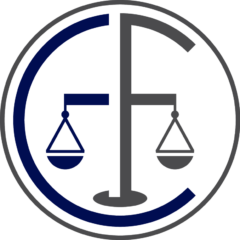Running for the District Attorney of a roughly million person county takes money. What are the expenses and what kind of money is required?
In 2022, I raised roughly $140,000. In addition, outside groups spent, if I recall correctly, another $300,000 to $400,000 to essentially support my campaign. Some of them, like the ACLU of North Carolina, did issue mailers to targeted voters. Others, like the Color of Change PAC, did issue mailers and door knocking. Law prohibits the coordination of the campaign – i.e., me – and outside groups, so I could not direct them what to do, nor could they ask me what I would have wanted them to do.
The bulk of fundraising came from people I knew or had life-long friendships with, including family and college friends. People with higher net-worth friends can raise more money. While campaign consultants will tell the candidate to “dial for dollars” by cold calling lists of people who have given, in my experience it’s hard to convince someone to give if you don’t know them personally and especially if they don’t live in Wake County.
People who have had prior experience either serving in or running in elective office will have a much easier time raising money. In some cases, they may have the money already raised, in which case they will be permitted to use that toward a run for DA. In other cases, they will have built up friendships with people who have a habit of giving to a political campaign and have the money to do so. And so asking those people to give for a run for Wake County District Attorney will be relatively easy, and much easier than cold-calling.
The money having been raised, everything else is much easier.
Where does the money go? A treasurer. The first thing I did was to hire a treasurer, whose task is to simply make sure the campaign is compliant with state campaign finance laws and file the campaign finance reports. The expense was relatively low – under $5,000 over the whole campaign – and reduced stress on me to do that work myself or the worry of relying on a volunteer. Since I was running for an office whose whole mission is integrity, the last thing I wanted was even an innocent campaign finance violation.
A campaign manager. For most of my campaign, I had a professional campaign manager. A volunteer simply will not work since, unless a very special person, volunteers will treat what is crucial work as optional. Since I had to keep working at my day job of being a criminal defense lawyer, I could not simply spend time each week managing my campaign and running for office. Given the election will be next Spring when the Democratic Party primary takes place, you would expect roughly $60,000 to $80,000 to go to a campaign manager over the next year.
The other expenses then will be signs, door tags for canvassing, some bumper stickers, social media/internet advertising. Radio and television ads are unlikely expenditures for anyone but the most well-funded campaign.
The best funded campaign may have two or three paid staff members, the value of which is fantastic, especially if the candidate himself or herself does not need to hold a job during the course of the campaign.
I’ll post updates here under the tag #wakeDA
